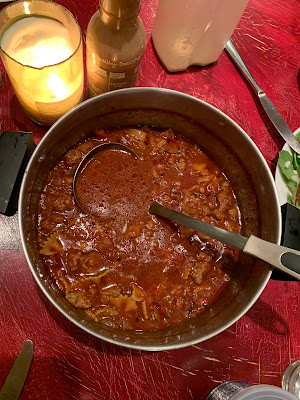We are not hardcore "preppers" but we've always tried to have some fundamental emergency planning in place, which has been especially reassuring during the current pandemic.
Insurance
Supply chain disruptions
With the panic-buying and shortages during the lock-down phase of the pandemic earlier this year we've been especially grateful of our inventory of food, medications and supplies on hand. We have a pantry in our basement, and we keep at least one in reserve of most of our regular food items, including canned goods, oatmeal, baking goods (flour, sugar), plus an emergency stock of long-viable food, such as rice, dried beans, canned soups, etc. When the stores were selling out of flour, we had our 25 lb bag to last us a long time. We had the 50 pack of toilet paper. We had extra dog food, over-the-counter medications, and extra insulin.
First Aid
Fire
Our home's previous owners installed a LARGE number of smoke detectors. We do need to do a better job of testing them two times per year, though. We have a fire extinguisher just off the kitchen. Appliances are one of the biggest sources of fires- I never run the dryer when we're not home and we empty the lint screen each time. Every couple of years I take pictures of the contents of the house, and we keep digital copies of these and other important documents from an annual computer backup in a safety deposit box at the bank.
Gases
We've done radon testing in both our houses. Our current house has a radon pump that the former owners had to pay to install after we insisted on a radon test for the sale. We recently tested for radon again to ensure the pump is working. We have carbon monoxide detectors on each level of the house. We don't run the cars in the garage for more than a few seconds.
Flooding
This emergency happened to us several years ago when we had the wettest June on record and our sump pump system failed to keep up (our sump system drainage pipes were too narrow and were insufficient to the task), flooding our basement. Fortunately, we had both a sump pump rider on our home insurance policy, as well as a federal flood insurance policy, and our repairs were covered. Again, having the right insurance is a very important emergency management approach. We upgraded our sump pump and pipe sizes, and we installed an emergency battery backup so the sump can function during power outages.
We are also in the habit of turning off the water supply to the house when we leave on vacations. We had a friend who was on vacation when her shower curtain pole fell, turning on the shower. The shower ran for days, ultimately flooding much of the house. It was a disaster- the house was essentially totally ruined.
Power outages
Andy's insulin must be refrigerated, so we bought a used generator that could be used periodically for the refrigerator in case of long term power outages. According to a recent news article about people using generators after a hurricane, there was a large spike in carbon monoxide deaths from trying to use the generator in a garage or too close to the house, so I picked up a chain and lock to secure the generator to a large tree or structure well away from the house. We've got rechargeable and wind-up flashlights.
If a power outage persist for several days, household water delivery will begin to fail, so we have an emergency water filtration unit if we would need to get water from another source. Serious preppers have emergency water storage- this is something we could potentially improve.







